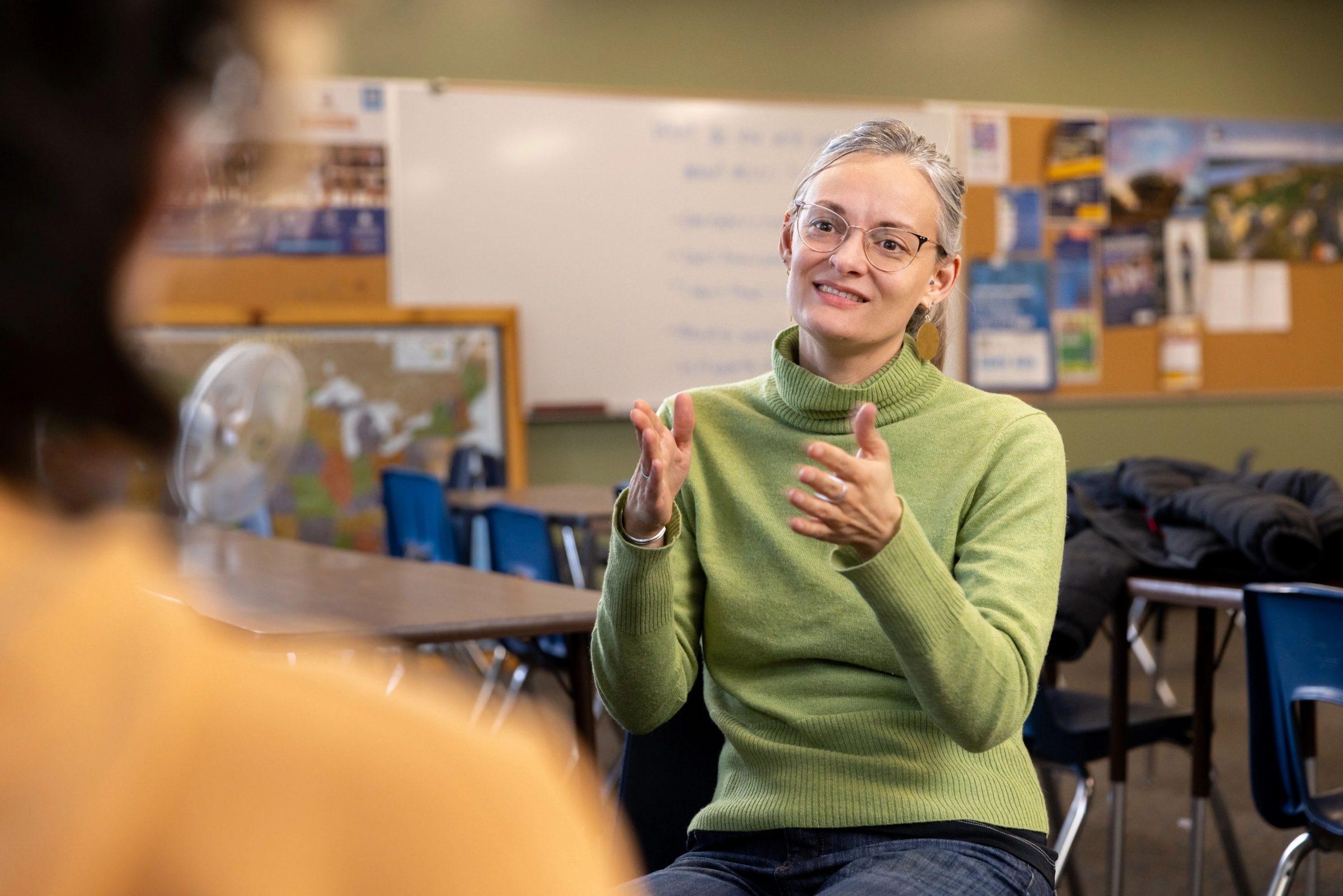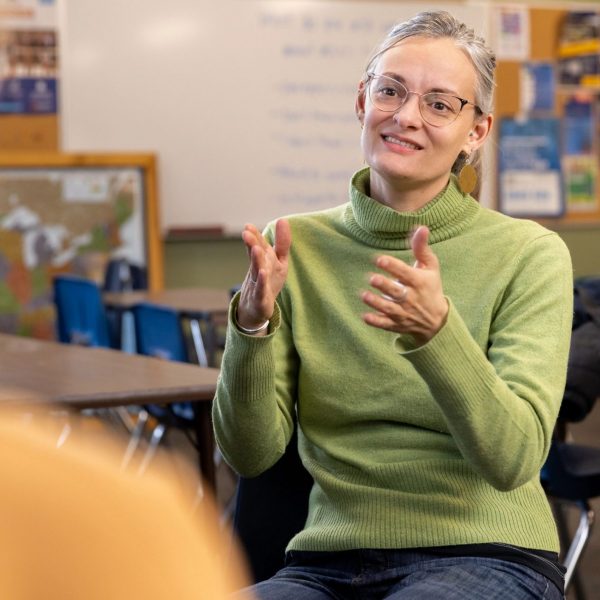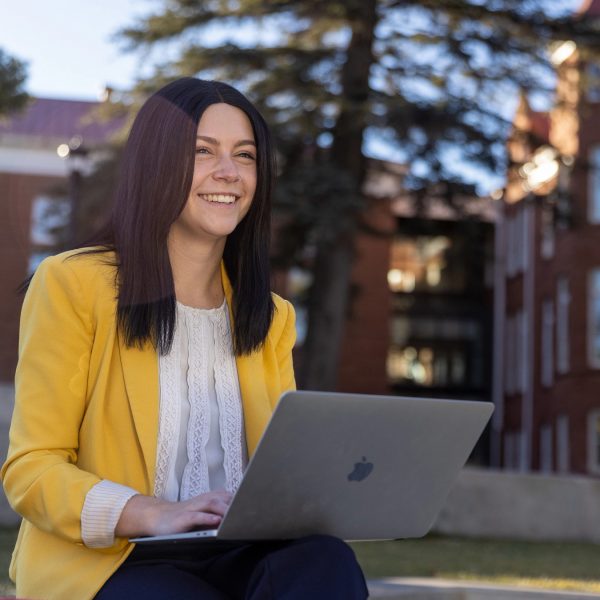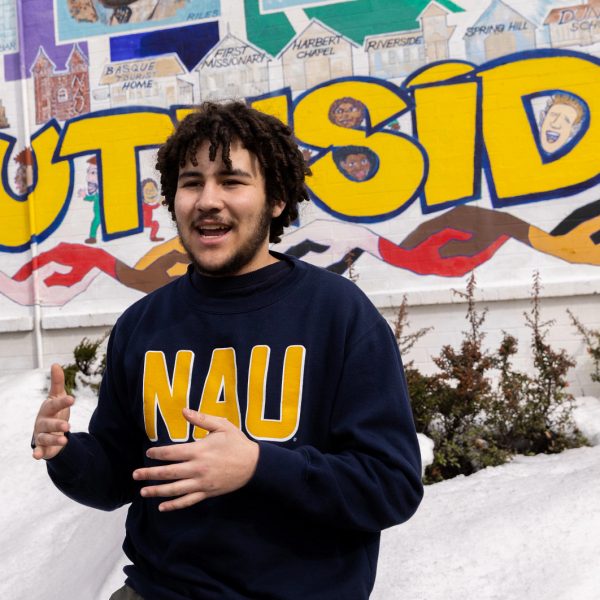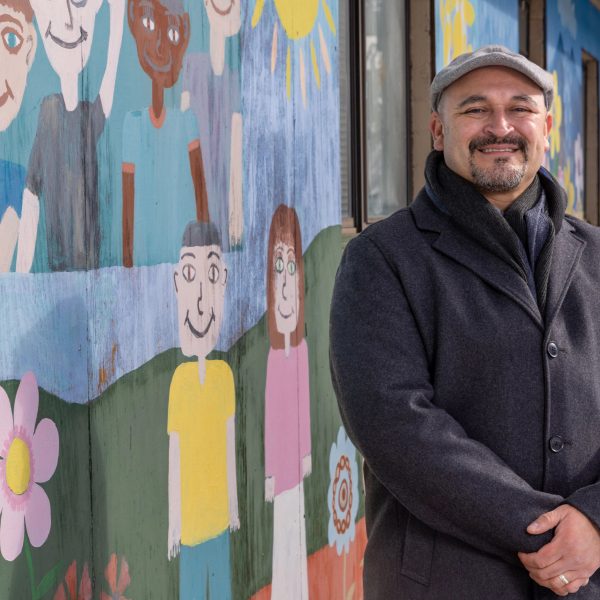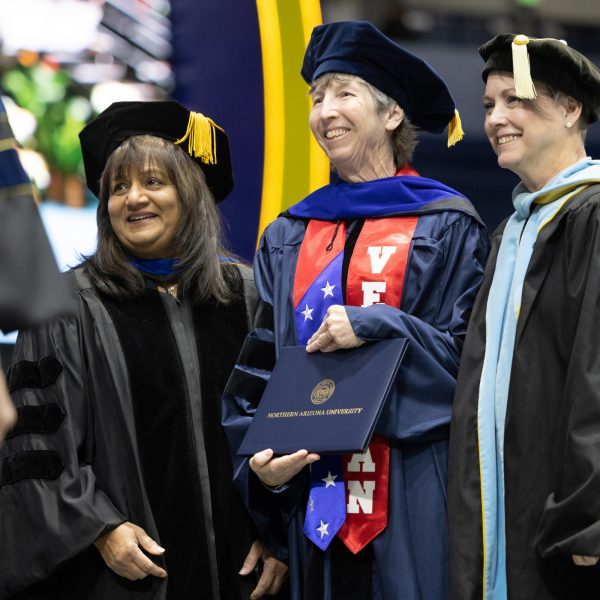In the Community-University Public Inquiry (CUPI) program, research skills, community needs, and teamwork combine to form a uniquely valuable experience for NAU undergraduates.
The program, which is open to all undergraduates but typically encourages junior- and senior-level students to apply, takes a semester and offers applicants the choice of a number of community-focused projects to work on. On the application form, students indicate which projects they are most interested in, and if selected for the program, they are paired with a “pod”—a group of their fellow students and project members. Graduate students lead each pod and assist their undergraduate team in coordinating research and liaising with the associated community partners for each project.
Nora Timmerman, an associate teaching professor in the Department of Sociology’s Sustainable Communities program, is also the faculty coordinator for CUPI. “I do a lot of the behind-the-scenes work to organize and coordinate the program,” she says. “That ranges from administrative work along the lines of, ‘Is our website up and functioning? Are we getting our applications open on time?’ to recruiting students for the program, to making sure we have enough funds for the program, to making sure that we have strong connections with our community partners.” Timmerman, whose book Between complicity and integrity: educators’ stories in tangled times will be published in 2023, has been with the program since its inception in 2015 and values the open-ended learning structure of CUPI. “I really love teaching and love that it keeps me kind of abreast of new ideas. I also really value the process of learning, so the better I can facilitate that with a group of amazing people, the more rewarding I feel like my work is.”
Undergraduate projects help Arizona communities
CUPI’s projects focus on issues affecting the northern Arizona community, including climate change, immigrant youth equity, rural food systems, and other initiatives. “Typically the community organization will say, ‘These are the kinds of things that we could use help researching from a team of undergrads,’ and will often bring those options to the students at the start of the semester to ask, ‘Which of these are you most interested in? Which do you want to pursue?’” Timmerman explains. “Sometimes the entire group will work on one issue or tackle different components of one project, and sometimes the entire group will break into smaller subgroups and tackle different projects for that organization.”
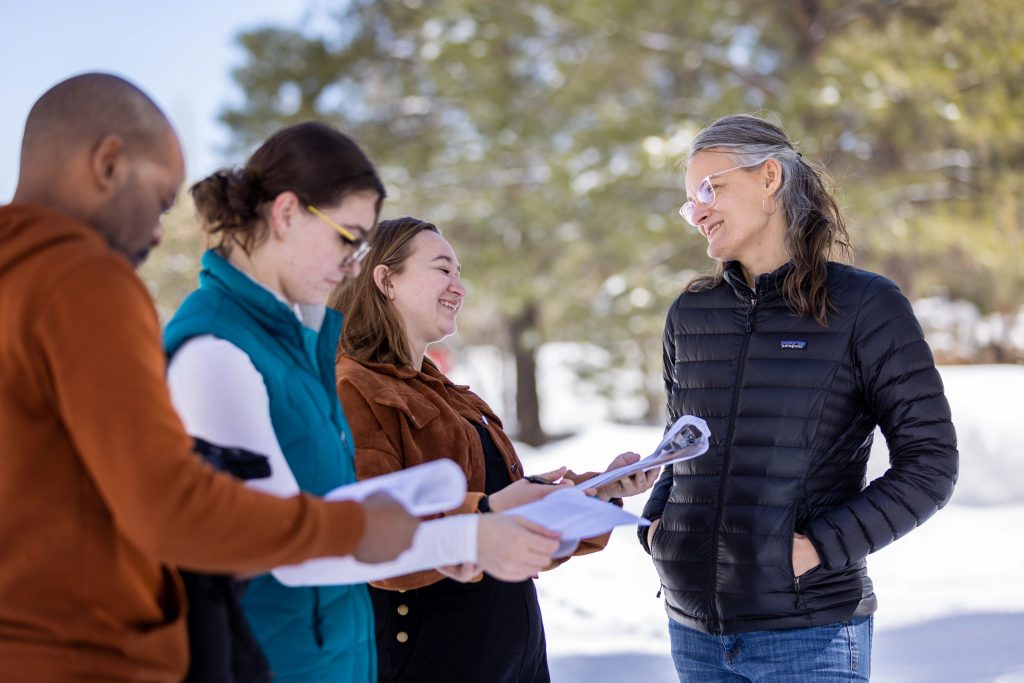
An example of a previous project includes a study on why sacred springs and traditional Indigenous water sources in Arizona are drying up. Students in the Grand Canyon Trust pod traveled to the Hopi reservation to talk with Elders and gathered, transcribed, and analyzed 27 oral histories of the springs. Each student also conducted their own literature searches to find answers to the historical, political, social, and environmental reasons behind the drying up of Hopi Sipapuni, a river feature that is culturally significant to the Hopi. Following the completion of their research, the students created a story map for the Grand Canyon Trust to use in outreach and educational water advocacy.
Community-wide collaboration is key to project success
In order to ensure CUPI projects run smoothly, Timmerman works closely with Flagstaff community leaders. “I form relationships with those community partners and make sure that their needs are getting met by the work that the pods are doing, and make sure that the graduate students’ needs are getting met from the community partner,” she says. “It’s a big interpersonal collaborative effort, coordinating all those different people and figuring out their different needs.”
In fact, interpersonal effort is a hallmark of CUPI. “This is what community-engaged research is all about,” Timmerman says. “It’s really different than most academic classes in the sense that it’s very emergent, and it can feel messy and unknown. A typical college class will be like, ‘This thing is due on this day, and here are the requirements.’ In this space, it’s a collaborative effort. The expectations for students are determined by them and by the community partner, and we don’t know what that’s going to look like until we all get together and start doing the work.”
Students walk away knowing how to tackle this big project with other people, how to compromise, and learn when to stand up to say something versus when to say, ‘Okay, this is not a hill that I need to die on,’ which I think is really valuable.
The students participating in CUPI often use their research projects as a way to make an impact in their community. “I think most students who enter CUPI are really interested in making the world a better place, and they get a sense that research can be a part of that,” Timmerman says. “It’s not necessarily something that just happens in a lab or on a survey. It can be an empowering process for them as students, and it can be empowering for the people who participate in the research. Mostly what I see at the end of the semester is that people feel really excited and proud of the work that they’ve done.”
Students gain career and life skills
The unique qualities of CUPI—close teamwork within each pod, interfacing with both academic and community partners, and the semester’s open-ended structure—offer unique benefits to its students. “I think that the advantage for many students is that CUPI is going to give them skills in leadership, professionalism, and time management that they’re going to need in any kind of postgraduate work that they’re doing,” Timmerman says. “Students walk away knowing how to tackle this big project with other people, how to compromise, and learn when to stand up to say something versus when to say, ‘Okay, this is not a hill that I need to die on,’ which I think is really valuable.”
Unsurprisingly with its focus on interpersonal communication, CUPI also often builds connections between its participants. “It can be a great place to meet people and find friends. There’s a lot of people who have met others with very similar backgrounds and experiences, and it can feel really validating,” Timmerman says. “A number of students have also gone on to get jobs and internships because of the work they’ve done with CUPI and the relationships they’ve built.”

